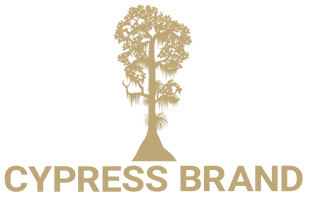Frequently Asked Questions

The LDWF had to find a way to monetize the wetlands owned by citizens to raise money to fight the erosion creeping up their shoreline. After 20 years, the alligator hunting ban was lifted, and The Alligator Management Program was created. Because of this program, Louisiana has increased its wild alligator population from less than 100,000 to over two million in 50 years.
Additionally, estimates have valued resources for landowners and farmers at over 100 million dollars annually, providing significant economic benefit to maintain their wetlands.
So What, it's an Alligator Free For All?
Not quite! Wild alligator hunting season takes place August through October in Louisiana. Every season, The LDWF issues a certain number of tags to each wetland owner based on the amount of land owned. Every hunter must have an alligator hunting license and every alligator they harvest must be issued a tag.
Once a wetland owner is out of tags, no further alligators can be harvested on their land. The LDWF does this to closely monitor and avoid over-harvesting.
Doesn’t Alligator Hunting Hurt the Population?
Actually, it does quite the opposite! As we said before, the wild alligator population is currently over 2 million in Louisiana alone. When alligators mature, they stop reproducing and in their territorial nature, kill younger, invading alligators. Older and bigger alligators are generally hunted because of their value. By removing these older alligators, we make room for the younger more viable alligators to thrive and reproduce.
Why Do We Care About Wetlands?
Wetlands store four times as much carbon as terrestrial forests. In fact, Wetlands constitute up to 25% of global carbon sequestration even though they only make up 6% of the earth's surface. Louisiana represents 40% (Florida- 29%) of the remaining wetlands in the United States. Many endangered species depend on the wetlands for survival as well.
In Louisiana alone, one football field of wetlands disappears each hour. The cost of wetland restoration is vast (up to $150,000 per acre) and most wetlands in the U.S. are privately owned. The LDWF comes into play because the money they raise by selling licenses and other activities is given to landowners to maintain and restore their wetlands.
How is Cypress Brand Sustainable?
Up until recently, wild alligator hide was sold at a premium price. Due to the rise of farmed alligator hide used by large luxury groups, demand and price plummeted. Suddenly, an abundance of wild alligator skin was being disposed of and left to rot in landfills. The wild skin was officially a bi-product. Cypress Brand was created to support local businesses, the environment, and most importantly, the sustainable use of alligators.

